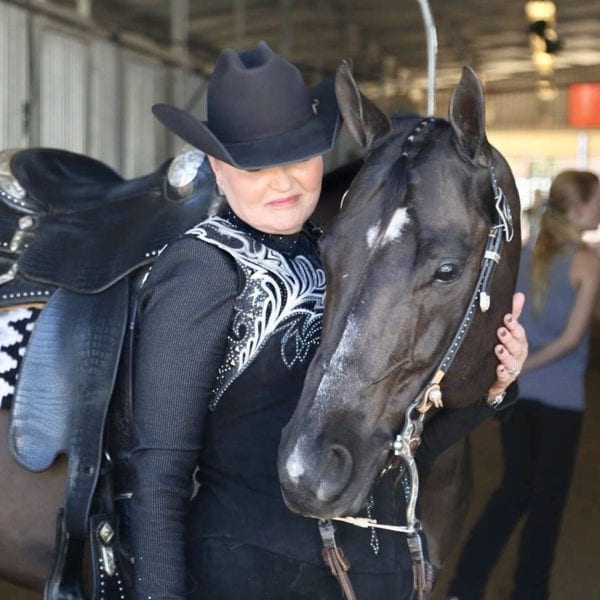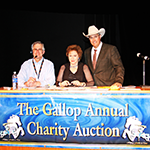“There is nothing better for the inside of a man than the outside of a horse.” –Winston Churchill
The days of driving to soccer practice, piano recitals, and ballet lessons are over. In a snap of the fingers, life goes from hectic meals on the run to quiet dinners for two. Empty nest syndrome doesn’t sneak up on you; it hits you like a 50-pound bag of senior horse feed that dropped in your lap. There is no clinical diagnosis for empty nest syndrome; it is not a mental health condition.
However, most adults feel the following symptoms when their children leave home: sadness, loss of identity, loneliness, and a sense that life no longer has meaning. What to do now? The nest is empty. The job is done. Where can the void be filled? Try your neighborhood show barn.
Horses need all the qualities that parents possess such as kindness, understanding, and tolerance. Whether you fall in love with a ready-made show horse, a young horse with potential, or adopt an aging horse, they all thrive on unconditional love. And you have plenty of that to go around.
Here are some strategies to help you feather your nest again and get on with the next exciting phase in life.
Meet-Ups
Set up get-togethers for yourself just like you did when you arranged play dates for the kids. To combat a loss of identity, redefine your community. It’s not always easy to make friends as we get older but make an effort to get to know new people, especially your barn mates. Go to the party; share a ride to a near-by horse clinic. Spending time outside the barn helps to create a stronger bond for the show ring and ward off loneliness. Don’t navigate your new environment alone. You’ll find comfort with others who are in the same phase of life as you.
There are many apps out there to help you organize your time together such as the GroupMe App. Creating a space where you can easily stay connected is easier than ever. Wouldn’t your kids be proud of your technology skills?
Even though it is great to be techy, nothing can replace face-to-face interaction. The more you hang out, the more likely you are to create lasting friendships. And what better place to do that than the barn?
Surprisingly, not only do horses bring a new and exciting opportunity for the empty nester, but they also bring a social network of like-minded people who share the love of showing horses. Find others who inspire you, make you laugh and share your passion.
Set Goals
An empty nest often leaves parents feeling lost. Setting goals for yourself and your horse will help to shift the focus from your children to your passion. Maybe there is a challenge that you have been wanting to try such as entering the trail class at the next horse show, loping bareback or merely refining your discipline rail skills.
Keep a journal and monitor your daily rides. Set aside fifteen minutes a day and record your progress. What are you working on this week? How many minutes did you spend on loping? What were your celebrations? What were your challenges?
Reviewing your journal will help to keep you motivated. Instead of feeling lost, you will have a clear direction for you and your horse. Setting goals and monitoring them can ease the emptiness in your life. Achieving your goals will leave you with a sense of accomplishment and fulfillment.
Get Involved
As children leave the nest, life may seem meaningless at first. Coping with a loss of purpose can be unnerving. Volunteering can turn that around. Special Olympics has an equine division. Your equine skills and knowledge of children will be of excellent service in this volunteer opportunity.
While you work to improve your connection to your horse, these athletes go to their competition and ride unfamiliar horses. Horses at a Special Olympics event are donated. Since seasoned parents are experts at helping others achieve their goals, your skills are an asset. Seek out the local chapter in your community and sign up.
Most of us who own horses know their therapeutic value. Being in the barn grooming, feeding, and caring for horses reduces stress, lowers blood pressure and improves overall health. The perfect opportunity to help others and be involved in your passion for horses can be achieved by helping at your local equine-assisted therapy center.
These centers provide equine therapy to children and adults with physical, emotional, or cognitive challenges. Patients with autism have difficulty emotionally bonding with others. During grooming sessions, autistic children physically bond with the horse which may, in turn, open the door to making human connections. Seeing people with physical challenges grow stronger, gain muscle control, coordination and become more confident in their bodies will open your eyes to the meaning of life.
****
You have given your children wings; they are not gone forever. They’ll fly in from time to time and tell you about all their new and exciting adventures. When they return to the nest, you will have some exciting things to share with them as well.
About the Author: Dawn Aguilar is a former hunter/jumper turned western pleasure enthusiast. She has been riding horses for most of her life. She has been an eighth grade English teacher in Illinois for over 20 years. Dawn is looking forward to showing her Paint/Pinto double registered gelding Harley’s Only Appointment.









